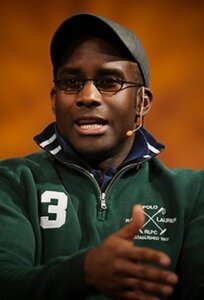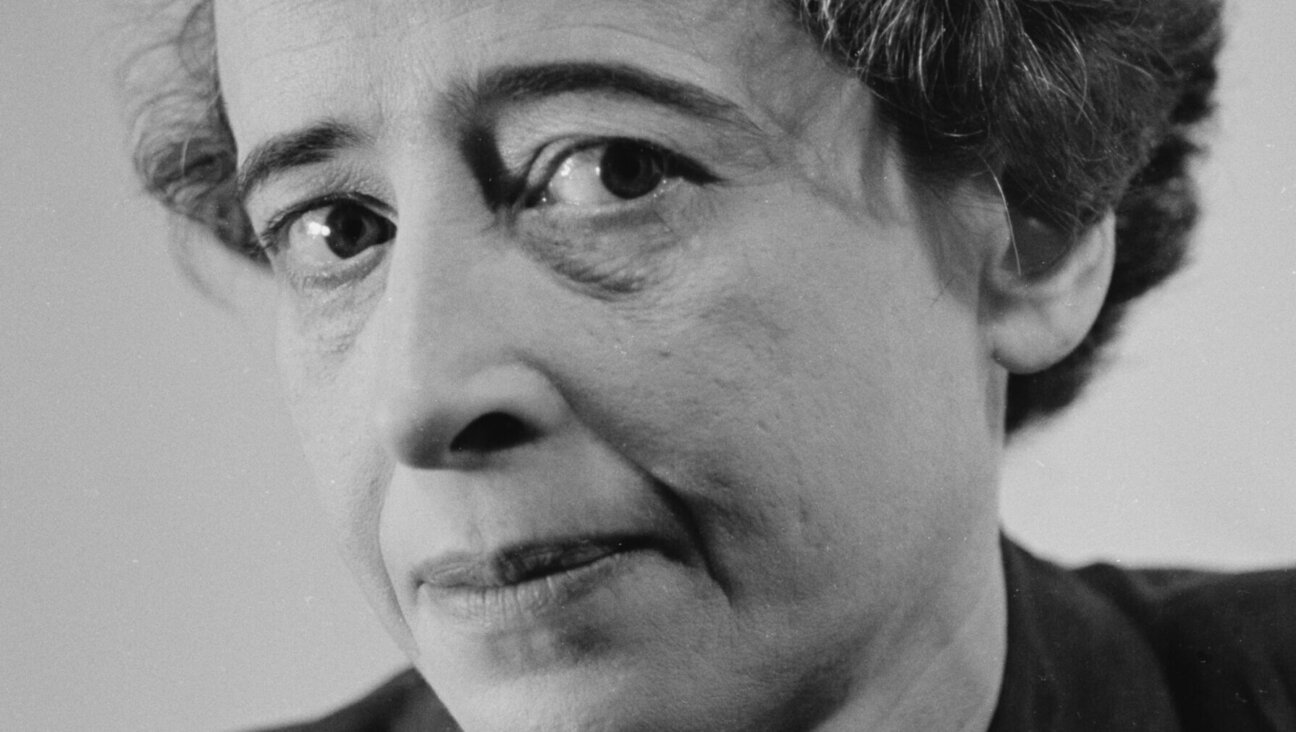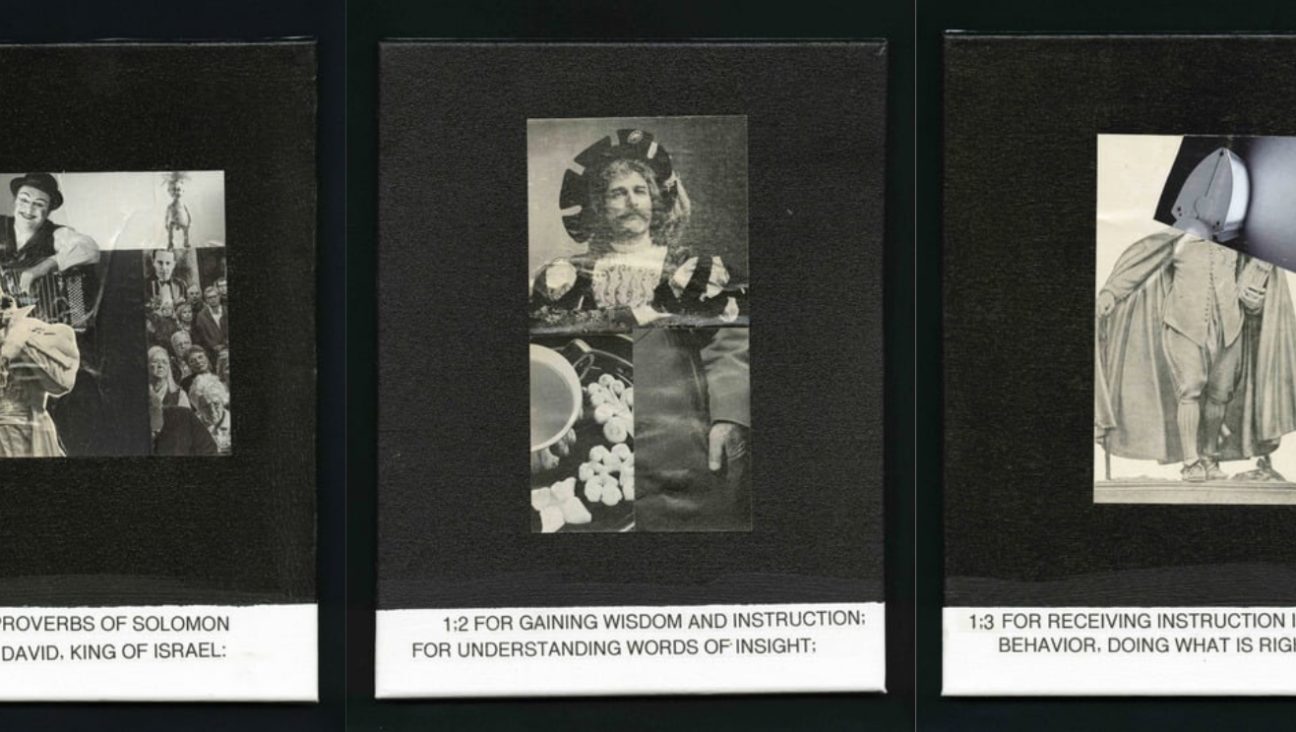The gospel of ‘Kingdom Business’ director Christopher Erskin
Despite his Jewish background, Erskin says he didn’t feel at all conflicted about helming a show about the gospel music industry

Graphic by Angelie Zaslavsky
The idea of a Jew directing a TV series firmly rooted in Christian gospel music might seem like an oxymoron or a leap of faith.
Yet that director is also Black, as is the genre of gospel being showcased. And the spirituality isn’t as incongruent as many might believe, said Christopher Erskin, who directed the 2004 hit comedy, “Johnson Family Vacation.” The director said he’s found a common denominator between his faith and the spirit of the new African American BET+ series “Kingdom Business.” He brought his trademark vision to helming the final two episodes, including the cliffhanger season finale.
The eight-part drama, which debuted on the streaming service this month, is about exotic dancer Rbel (pronounced “Rebel”) whose powerful singing voice draws her to the pulpit and challenges Denita, the reigning queen of gospel, who struggles with her own career and family secrets while running an in-house record label and megachurch.
“Kingdom Business,” written by “Mr. & Mrs. Smith” co-creators John Sakmar and Kerry Lenhart, is set in Atlanta with big-name stars, uplifting tunes, and a behind-the-scenes look at the gospel music industry centered on family, faith and the redemptive power of music.
Gospel superstar Yolanda Adams leads the cast as Denita, with Michael Beach playing her husband, Michael Jai White, as her former flame and record industry competitor, and Serayah, who starred in the Lee Daniels musical drama, “Empire,” as Rbel. Multi-Grammy winner Kirk Franklin not only contributes to the music — a highlight of the series — he also portrays Deacon D’Wayne, serves as an executive producer, and adds his extensive industry experience to the storylines.

Erskin began making films at age 9, writing short films and making home movies inspired by the films of Steven Spielberg, George Lucas, Ridley Scott and Martin Scorsese. He launched his career directing music videos for artists including Boyz II Men, Teddy Riley’s Blackstreet, and T-Boz of TLC. Erskin became known for his unique aesthetic vision and ability to capture the spirit of the music artist. He furthered his reputation with high concept commercials for companies including Pontiac, Athletes Foot, Tide, and an international Penshoppe clothing commercial starring actress-singer Mandy Moore.
Despite his Jewish background, Erskin didn’t feel any conflict with the show’s deeply Christian theme. His family has always been Jewish, he said. “My grandmother’s parents and grandparents practiced in their home of the Republic of Haiti on the island of Hispaniola,” he said. “My family fled the country in the 1890s because of intense pressure to convert to Catholicism. America allowed our family the freedom to worship as we pleased.”
While most of his family went to Brooklyn, his mom’s generation moved west, and settled in Los Angeles. He grew up “pretty actively Jewish” in the San Fernando Valley, he said, though the family didn’t attend a synagogue there. “Sometimes for Jews of color, the community you live in isn’t always that welcoming. So, a lot of our practice was at home.”
His family’s practice was “probably a little closer to Karaite Jews. I knew the written law was the Ten Commandments that HaShem wrote.” He didn’t learn about the Talmud until he studied cinema at the University of Southern California. He still practices, and keeps “kosher-esque,” eating a mostly vegan diet with some salmon. Erskin said he wears his kippah every day, including on set, and his tzitzits tucked in except on Sabbath, holidays, or in Jewish spaces. While he isn’t affiliated with a particular Los Angeles area synagogue, Erskin said he visits diverse synagogues, such as those in Harlem and Chicago, when he travels.

As is the case with Jewish gospel singer Joshua Nelson, known as the “Prince of Kosher Gospel,” Erskin’s intersectional identities have not hampered his career. Sabbath clauses in his contracts don’t pose an issue, he said. “This kind of diversity is status quo in the entertainment industry where, regardless of the subject matter, everyone working on a movie comes from a variety of faiths,” he said. “You have literally everyone you can think of working on these projects.”
He was introduced to “Kingdom Business” by series producer DeVon Franklin, a former vice president at Sony Pictures, who he met in college. Franklin kept him abreast of series developments, and when Erskin read the scripts, he found the theme that connected his beliefs to the characters and their stories. Despite his religious background, Erskin said he didn’t feel any conflict with the show’s deeply Christiain theme.
“When DeVon first sent me the scripts, what came to mind for me was redemption. Throughout the show you have this young woman, Rbel, whose past is no fault of her own. In various faith communities you have sin police who say you can never move beyond your past. I was reminded of Exodus 15:13, which most of us know as Mi Chamocha and think of as a song of deliverance from Egypt. That connected me to each character and the show, and fit perfectly with Rbel’s character arc,” he said.
Good storytelling can make the specific feel universal, which “Kingdom Business” achieves while being entertaining. “This series was created to be inclusive and inspiring with a message that would resonate with people of all backgrounds,” Erskin said.
“Kingdom Business” is now streaming on BET+ and the soundtrack from the first season will be released the third week of June. “The show’s creators purposely set out to make sure that, whether you were a believer or a non-believer, you could watch this show and find the redemptive quality, the love, the growth, the evolution—something that would touch you,” Erskin said. “The feedback I’ve gotten from the producers and the network is that it’s kind of resonated with people from everywhere.”
Maybe they’ll consider Joshua Nelson for a guest spot soon? It could work — so long as it’s not Shabbat.























